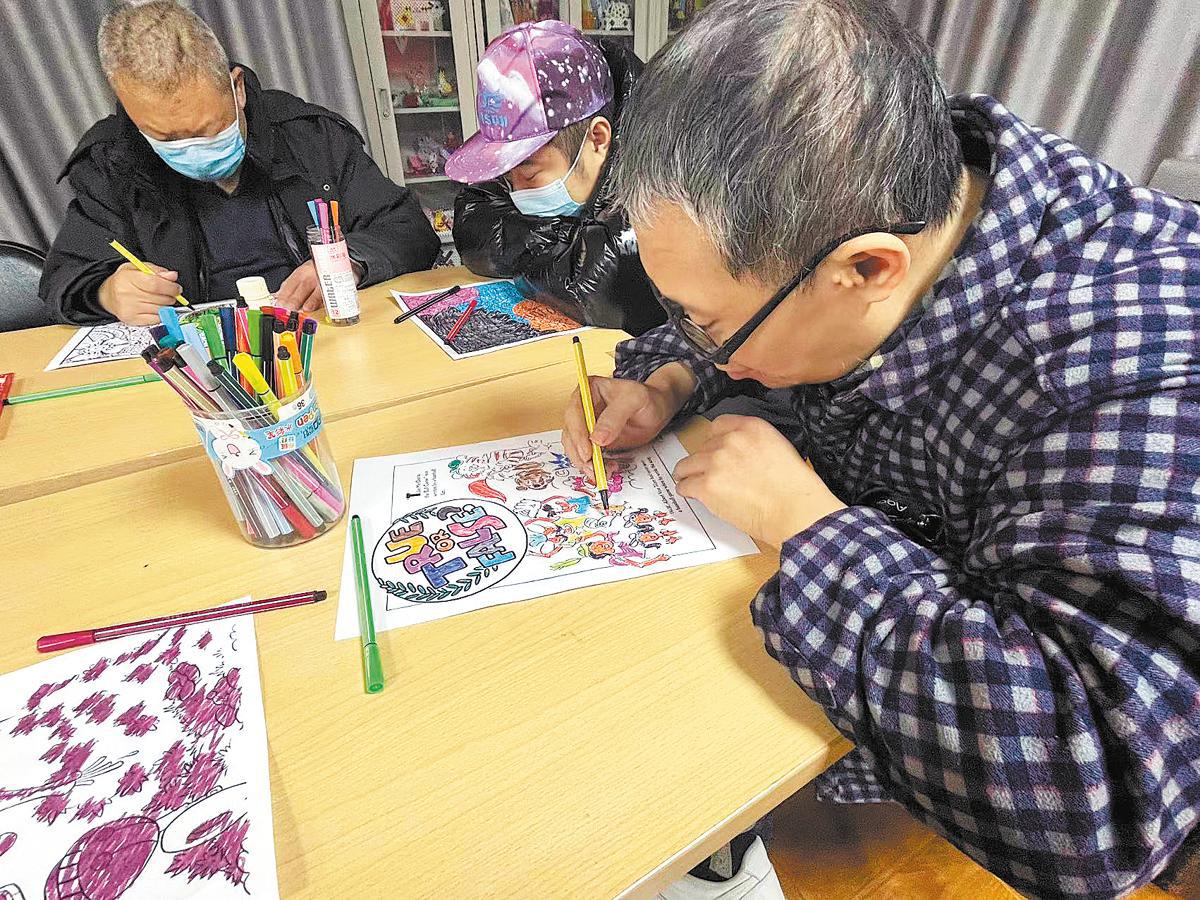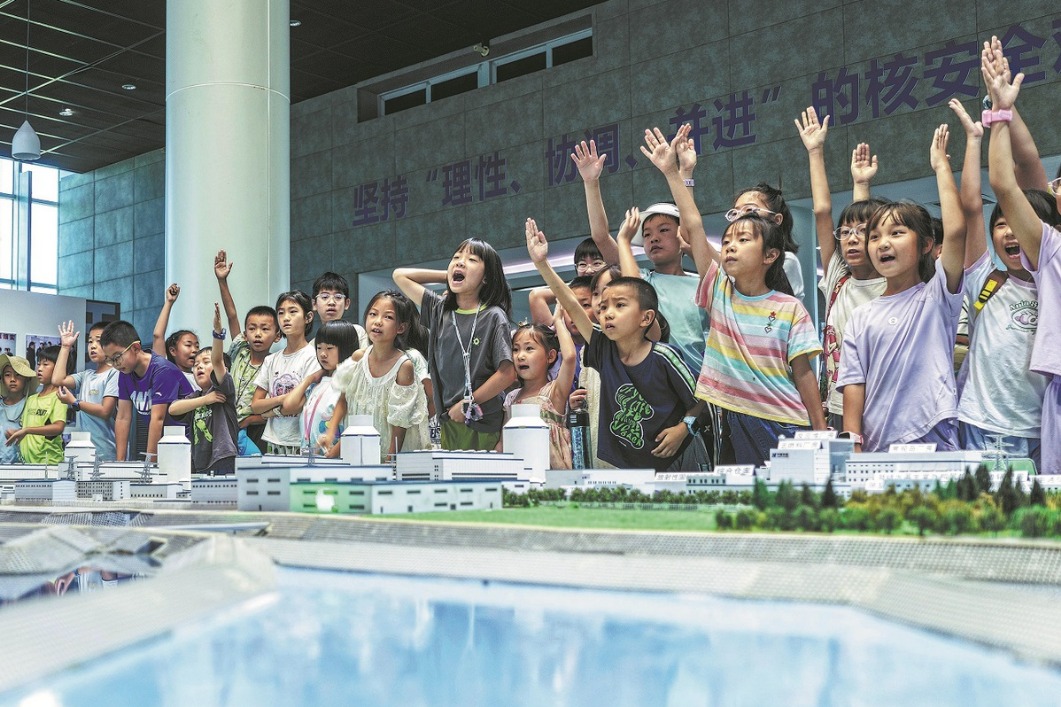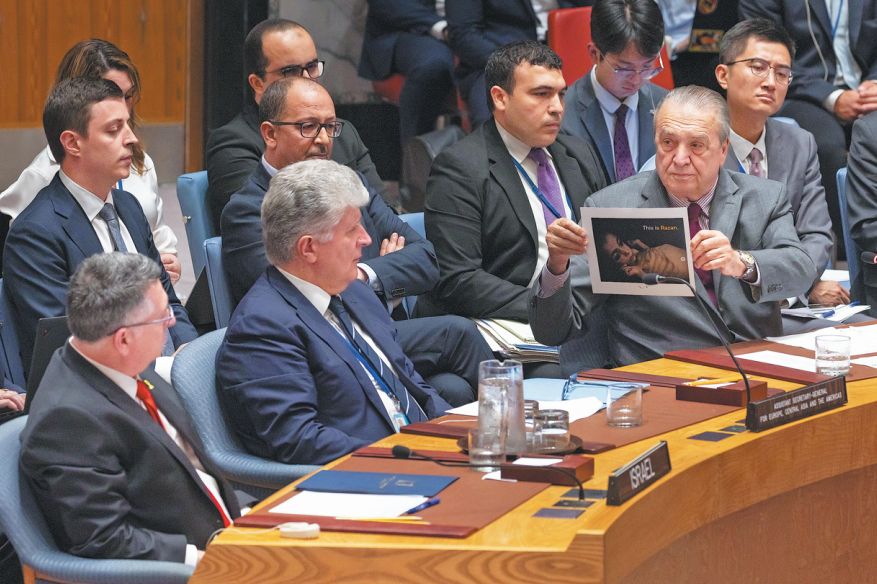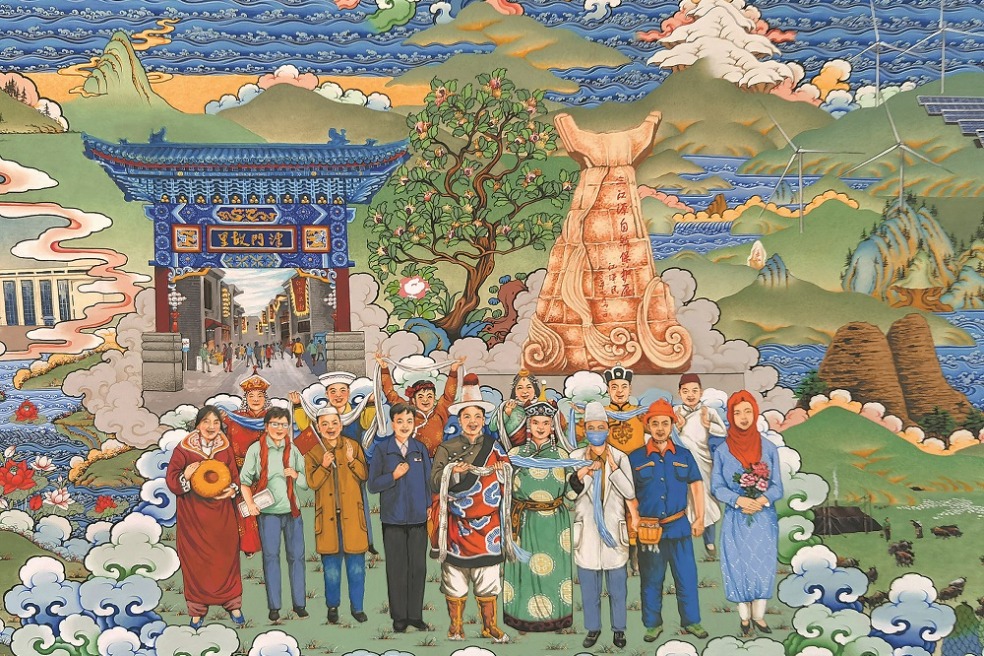Disabled people find a 'cozy haven' in center
Community offers a range of services to vulnerable group


Sunlight pours through the windows of Wenxin Jiayuan, literally "cozy haven", a small but vibrant community center nestled in Dongzhimen subdistrict, Dongcheng district, Beijing. Inside, several residents with disabilities are weaving intricate knots, their fingers moving with precision and calm.
It is a scene that plays out daily in this quiet corner of the capital, one that reflects a broader commitment to improving lives.
Dongzhimen subdistrict is home to 1,541 residents with disabilities. From individuals with learning difficulties and hearing impairments to wheelchair users, many now benefit from a range of dedicated services aimed at fostering independence, skill building and community connection.
Those efforts were nationally recognised in May, when the subdistrict's civil affairs office was named an "Advanced Collective in Disability Support" at China's seventh National Model of Self-Improvement and Advanced Disability Support Commendation Conference.
"This honor reflects the work we've integrated into everyday community services," said Kang Anqi, deputy director of the Dongzhimen subdistrict administrative committee. "Wenxin Jiayuan is the nearest and warmest support hub for our residents in need, and we continue to explore new ways to assist them."
Echoing her, Deng Mei, head of the Disabled Persons' Federation of Dongzhimen Subdistrict, who is in charge of the Wenxin Jiayuan, emphasized that supporting individuals with disabilities is like "an unceasing relay of warmth".
"The recognition we received is like a torch that inspires us to keep going, to deepen community bonds and make small, steady progress," she said.

Statistics showed that the street has attracted a combined fund of up to 1 million yuan ($139,000) and partnered with 25 government bodies and private enterprises to develop training programs and improve accessibility, often guided by professional teams.
Inside the Wenxin Jiayuan, people with disabilities can be found making birthday cakes, crafting fashion accessories, exploring photography, or learning vocational skills.
A young man surnamed Cao, who has learning difficulties, enlisted for training of hotel service in tableware cleaning offered by the center, and achieved a job training certificate from Beijing Rosewood Hotel.
After earning his vocational certificate, he found employment at the nearby Beijing Oriental Mao Hotel, which brought much joy and relief to his family.
Liu Shudong, a retired interpreter and researcher at Yonghe Temple, also known as Lama Temple, and a member of the Beijing History Research Association, was an active volunteer in the center.
"I've taught history, culture and etiquette there for the members three times a week, and what impressed me most was that the trainees prepared a big birthday cake in cold December last year for me to celebrate my 70th birthday after my class.... At that moment I was impressed by their improvement and their love in response to our contribution," she said.
Some local residents gaining support from the center expressed their sincere gratitude.
"It's incredibly convenient to have bathing services right at your doorstep, with professional caregivers to assist," said an elderly man surnamed Zhang, who has a physical disability, regarding the bathing assistance services provided to him.
Addressing the issue of difficulty in bathing for individuals with disabilities, the subdistrict has introduced professional institutions to offer home-based bathing services, catering to over 100 individuals throughout the year.
Statistics indicated the subdistrict provided services including daily care for the needy, besides a convenient canteen service with reasonable prices for up to 10,000 people.
yangcheng@chinadaily.com.cn
























